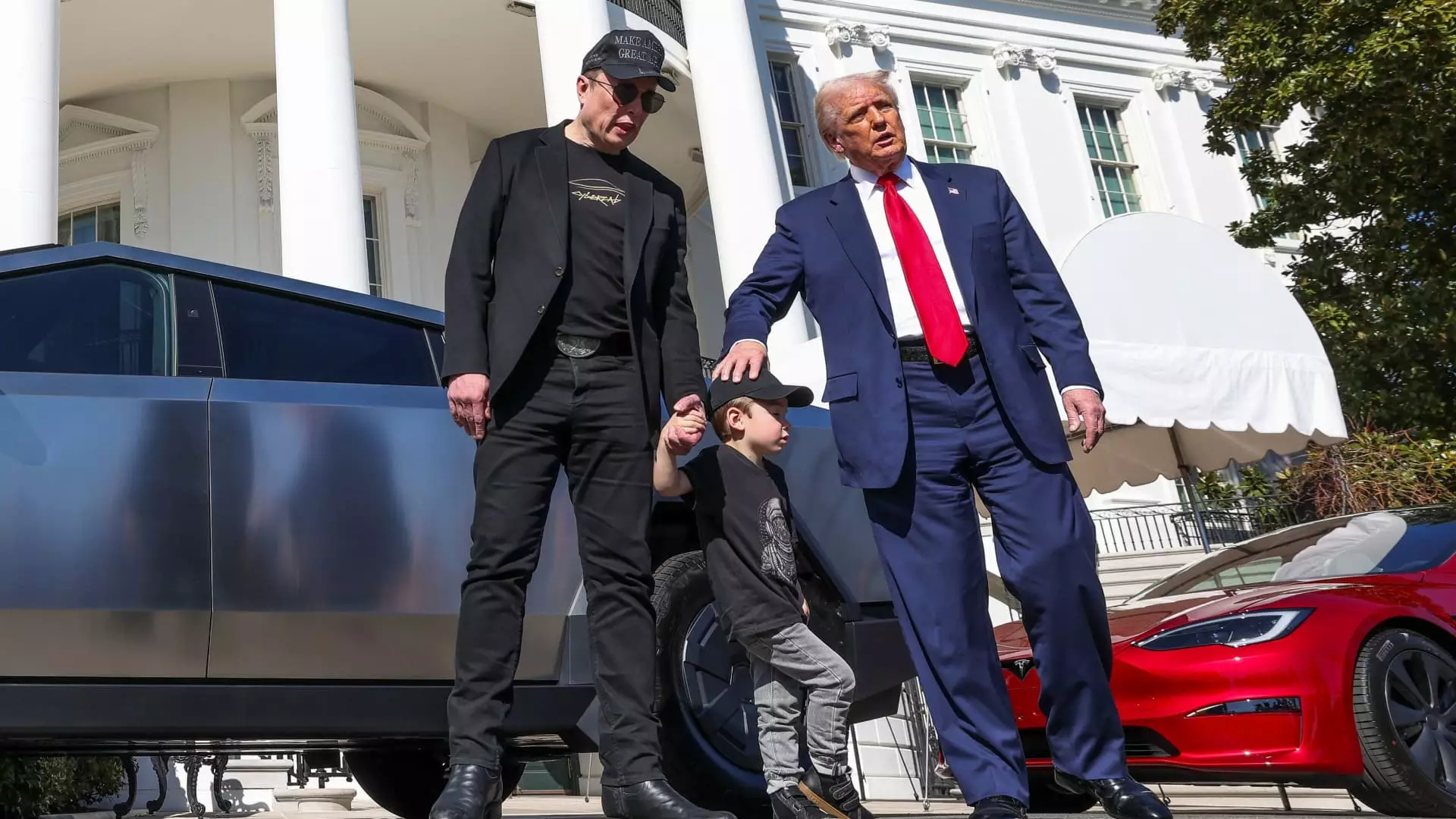In a recent earnings call, Elon Musk expressed his ambivalence towards high and unpredictable tariffs, stating that the ultimate decision regarding these levies lies with the President of the United States. Musk’s acknowledgment of the unpredictable tariff environment reflects his acute awareness of the economic repercussions that such policies can impose on businesses, particularly in the automotive sector. Despite his fairly privileged position due to Tesla’s swirling operations across various regions, Musk’s criticism of tariffs indicates a broader concern for the industry. This is not just a personal rant; it’s an insight into the intricate web of relationships and dependencies that define modern supply chains.
Within this context, Tesla appears to be in a strategically advantageous position compared to many traditional automakers. With supply chains localized in North America, Europe, and China, Tesla has mitigated some of the risks associated with tariffs. However, this does not exempt the company from the overarching uncertainties that tariffs introduce in international markets. Musk’s argument that Tesla remains “the least-affected car company” by tariffs signals his intent to maintain a competitive edge while acknowledging that the broader industry is not as insulated.
Quarterly Disappointment Amidst Tariff Concerns
Despite these apparent advantages, Tesla disclosed troubling financial metrics during the earnings call, highlighting a staggering 20% year-over-year decline in automotive revenue and a drastic 71% decrease in net income. Notably, the absence of guidance for 2025 heightened concerns among investors and stakeholders, reflecting an unsettling atmosphere that the company currently navigates. Musk’s criticism of tariff-related policies becomes more pronounced against this backdrop of poor performance, suggesting that while he champions localized supply chains, the ramifications of external economic factors are significant.
Investor response has been visibly negative, with Tesla’s stock price suffering since the announcement of potential nationwide tariffs. It’s ironic that while Tesla may reap the benefits of local manufacturing in some areas, the very materials it depends on—sourced from countries like China—render it vulnerable to fluctuations in international policy. The juxtaposition of localized production against a backdrop of global dependency portrays a tension that epitomizes modern manufacturing complexities.
Personal Conflict and Public Image
Musk’s position on tariffs is made even more intriguing given his close ties to the Trump administration. While he serves as a trusted advisor to the former President, his overt criticisms of key officials—such as Peter Navarro—evoke a paradox of loyalty and dissent. The public backlash against his comments signals a wider discomfort within the business community regarding government intervention in trade. Musk’s frustration exemplifies a broader struggle that many entrepreneurs face: advocating for free-market principles while engaging with a political landscape dominated by unpredictability.
Furthermore, Musk’s commentary that he provides advice on tariffs yet respects the President’s ultimate decision speaks to the limitations of influence when residing in a political arena. The competitive nature of the automotive industry, compounded by tariff policies, creates a delicate balance for which Musk must strategize continuously. It indicates that while he has the ear of power, the bureaucratic inertia of policy-making often stifles the agility that companies like Tesla thrive upon.
Future Supply Chain Challenges
Musk also identified challenges that Tesla’s energy division faces under current tariff structures. As the company increasingly focuses on battery technology, the reliance on lithium iron phosphate battery cells sourced from China introduces vulnerability. His comment on commissioning local equipment underscores an urgent need for domestic capabilities, yet it also highlights the logistical and strategic hurdles in building a resilient supply chain that can withstand external shocks. The balance between rapid growth and strategic foresight is essential; Tesla cannot simply rely on its existing frameworks with ambitions for a global market.
Elon Musk’s nuanced approach to tariffs reveals a complex interplay between his business strategies and an unpredictable political landscape. While Tesla intends to solidify its local manufacturing capabilities, the looming specter of tariffs continues to shape corporate strategy and investor sentiment alike in today’s volatile economic climate, making the future of the automotive industry uncertain and fraught with challenges.


Leave a Reply